I have the following image:
Converted to base64, it looks like this:
import base64
filename = 'image.jpg'
with open(filename, "rb") as image_file:
encoded_string = base64.b64encode(image_file.read())
image_file.close()
with open("encoded_string.txt", "w") as converted_file:
converted_file.write(str(encoded_string))
converted_file.close()
Download the output file (base64) here: https://file.io/NXV7v4
Now, my question is:
How can I retrieve the converted image and show it in jupyter notebook, without having to store it ?
Based on [this][2] question, I tried:
from PIL import Image
import cv2
import io
# Take in base64 string and return cv image
def stringToRGB(base64_string):
imgdata = base64.b64decode(str(base64_string))
image = Image.open(io.BytesIO(imgdata))
return cv2.cvtColor(np.array(image), cv2.COLOR_BGR2RGB)
stringToRGB(encoded_string)
but I got:
---------------------------------------------------------------------------
OSError Traceback (most recent call last)
<ipython-input-43-2564770fa4af> in <module>()
----> 1 stringToRGB(encoded_string)
<ipython-input-42-538f457423e9> in stringToRGB(base64_string)
18 def stringToRGB(base64_string):
19 imgdata = base64.b64decode(str(base64_string))
---> 20 image = Image.open(io.BytesIO(imgdata))
21 return cv2.cvtColor(np.array(image), cv2.COLOR_BGR2RGB)
~\Anaconda3\lib\site-packages\PIL\Image.py in open(fp, mode)
2655 warnings.warn(message)
2656 raise IOError("cannot identify image file %r"
-> 2657 % (filename if filename else fp))
2658
2659 #
OSError: cannot identify image file <_io.BytesIO object at 0x00000224D6E7D200>
